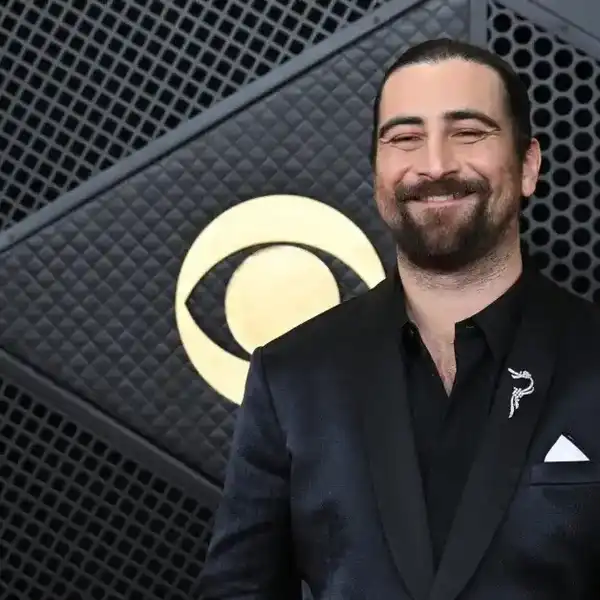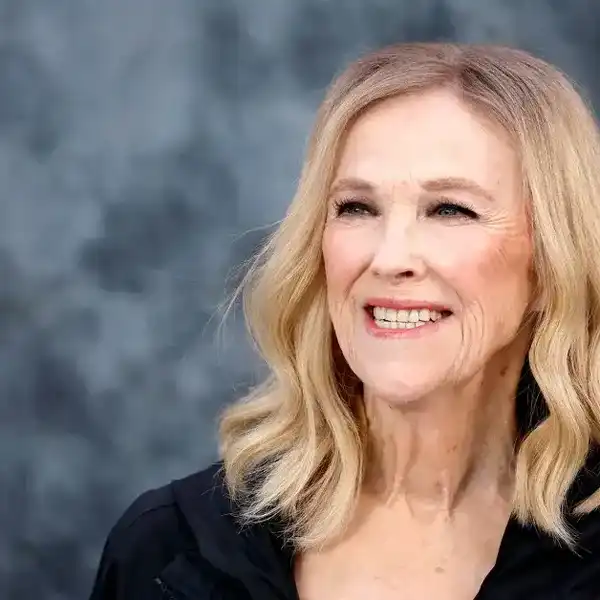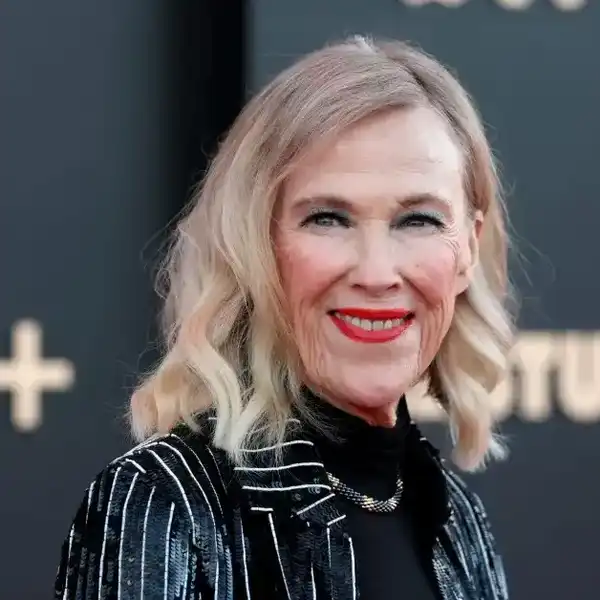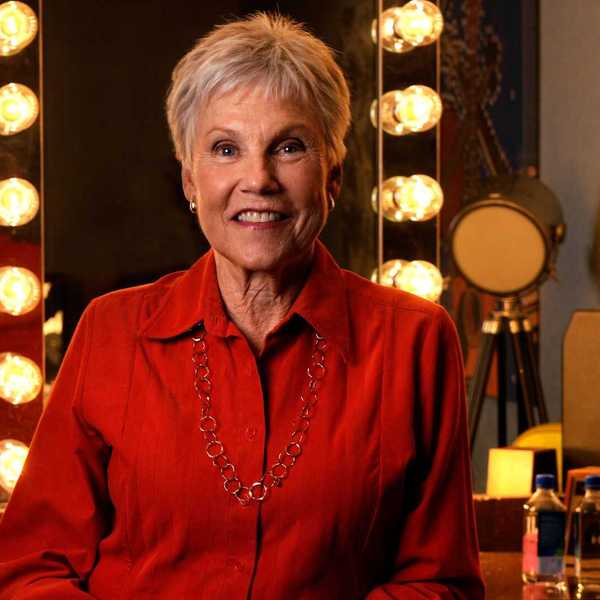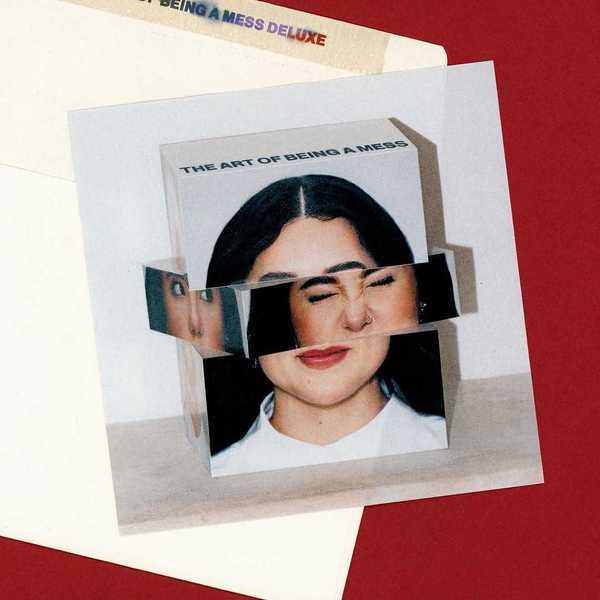Obituaries: Legendary Manager/A&R Executive Mary Martin, Recording Engineer John Naslen
This week we also acknowledge the passing of renowned B.C. broadcaster Rick Cluff, Kitchener, Ontario music venue operator Kevin Doyle and country musician Rusty Golden. There are tributes from Jane Siberry, Bernie Finkelstein, Lily Frost and more.
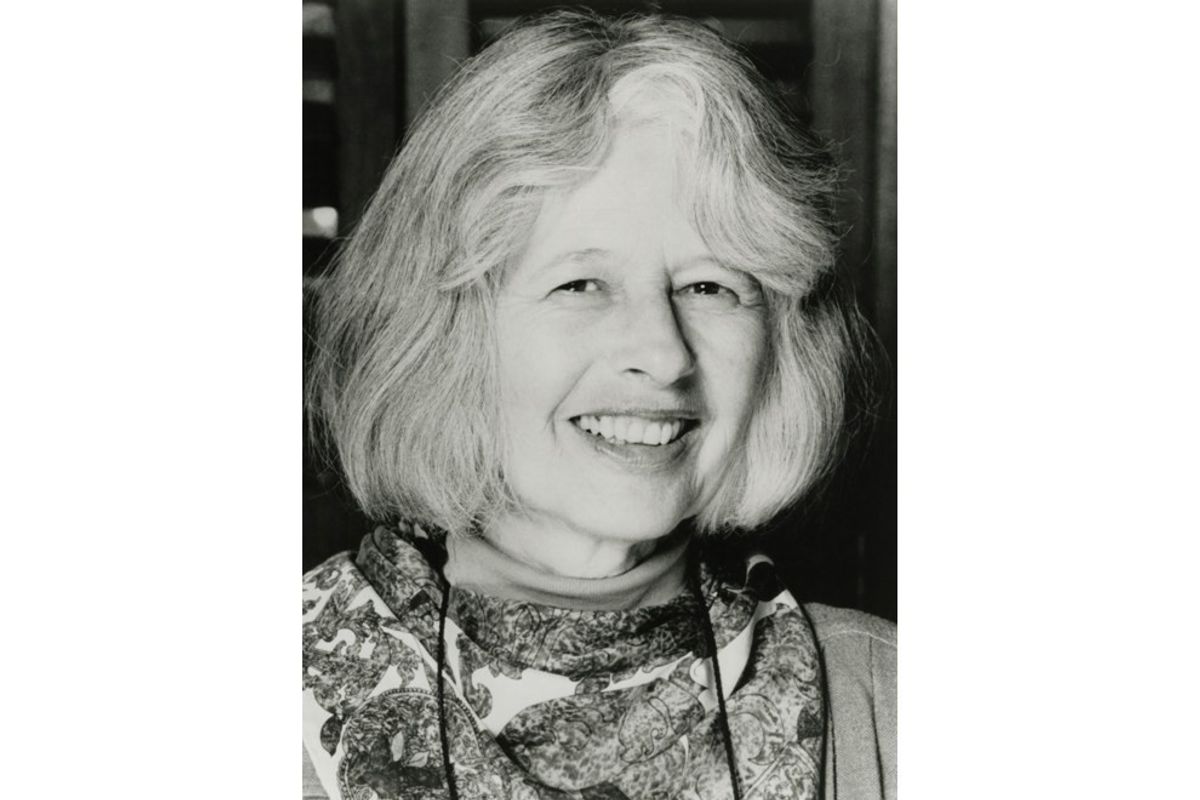
Mary Martin
In its obituary, CBC called Cluff "A consummate broadcaster who brought his friendly voice and big personality to CBC Vancouver in 1997 and helped turn The Early Edition into the No. 1-rated morning show in the competitive Metro Vancouver radio market. His ability to connect with people, genuine curiosity and sharp journalistic instincts helped endear him to a growing legion of listeners, which peaked at over a quarter million per day in his 20-year run as host."
Cluff moved to Vancouver from Toronto where he had spent two decades with CBC radio sports.
He counted covering the announcement of the International Olympic Committee awarding Vancouver and Whistler the 2010 Winter Games and broadcasting as the 9/11 World Trade Centre attacks unfolded as two unforgettable moments in his radio career.
Cluff and The Early Edition team earned a number of awards, including for their coverage of the Robert Dziekanski tasering at Vancouver International Airport, B.C. education strife and protests over gentrification.
In 1999, Cluff was inducted into the Football Reporters of Canada section of the Canadian Football Hall of Fame. CBC notes that "As a former player, football — and especially the CFL — held a special place in his heart. Besides broadcasting from Grey Cups, Super Bowls and Stanley Cups, 'Cluffer,' as his sports family called him, also travelled the world to cover Canadian teams and athletes at eight Olympic Games, five Commonwealth Games and too-many-to-mention world cups and world championships."
"He truly got joy from elevating and coaching others to find their path to success as journalists," said Shiral Tobin, a former producer of The Early Edition and now CBC Vancouver's journalism and programming director. "He mentored many people who came through the program, often quietly and privately, yet always in a meaningful and genuine way."
He was the recipient of a Lifetime Achievement Award from the Canadian Radio Television Digital News Association.
Following a 41-year career at CBC, Cluff retired in 2017 after undergoing quadruple heart bypass surgery.
Kevin Doyle, former operator of the Boathouse music venue in Kitchener, died on June 29, at age 57, of cancer.
Doyle worked tirelessly in promoting live blues music in the region, and the Waterloo Region Record reports that "he will be honoured with a posthumous award for his volunteer work with the Kitchener Blues Festival." The paper called Doyle "a music lover whose passion turned the Boathouse in Kitchener into one of the area’s leading live music venues in past years."
Doyle owned and operated the Boathouse from 2004-2013, when the City of Kitchener took control of the venue after Doyle fell behind on rent and utilities. It reopened in 2015 but closed abruptly in October 2019 and has sat empty ever since. Long-delayed plans to reopen the venue shortly are well under way now, as CBC reported last month.
Doyle acted as Assistant Artistic Director of the highly-regarded Kitchener Blues Festival from 2001-2013. He returned to the festival a few years ago, working one of the stages as a hospitality manager.
Kitchener-based music journalist, author and radio host Coral Andrews provided Billboard Canada with this tribute: "The Kitchener Waterloo music community is heartbroken. Kevin Doyle was a giant — a guy who supported, hell, often defended, live music. For nine years he operated Kitchener's Boathouse — at one point, an actual boathouse in the town centre nestled on the banks of a lake in scenic Victoria Park. As the Boathouse's lovable captain, Kevin creatively steered delighted audiences toward an eclectic gumbo of live music six nights a week and had those old wooden salmon-pink concert-postered walls rocking and rolling for nine glorious years.
"Whatever the genre of music, Kevin was known for giving musicians, from famous ones on tour or indie novices, a stage to play on, one that became a strong foundation, an artistic community — and, to many regulars, a family. Kevin always said the Boathouse was a place where the focus was the band and their music. There were no TVs while he was there.
"In 2013, Kevin left The Boathouse due to disagreements with the city over bills and renovations, deciding to pursue his other vocation as an electrician. But music was always in his life. He hosted the popular campus radio blues show Voodoo Healing and was instrumental in the formation of The Grand River Blues Society and Blues, Brews & Barbecues, which evolved into the renowned Kitchener Blues Festival."
The tidal wave of posts on social media says it all. As one musician noted, “it was not about the building, it was about the man."
Andrews paid homage to Doyle on her radio show, Coral Rockks, on FM98.5 CKWR, on the weekend, playing music from artists he loved and, in many cases, had booked, such as The Weber Brothers, Run With The Kittens and Big Rude Jake. Check that show out here.
Mary Martin, a legendary Canadian-born artist manager and A&R Executive who boosted the careers of many major artists, died on July 4, at age 85.
In its obituary, Billboard notes that "Martin was known as a fierce artist champion and musical connector. She became an influential A&R rep at labels including RCA, Warner Bros. and Mercury Records, starting in the 1970s."
Upon Martin's passing, The Country Music Hall of Fame and Museum issued the following statement from CEO Kyle Young: "Time and again, Mary Martin spotted great talents and elevated their careers. Early on, she connected Bob Dylan to her friends the Hawks, who became The Band. She managed Leonard Cohen in his first musical outings, then guided the budding solo careers of Van Morrison, Rodney Crowell and Vince Gill.
"At Warner Bros., she signed future Country Music Hall of Fame member Emmylou Harris, at RCA she helped sign and develop Clint Black and Lorrie Morgan, and she encouraged a young Keith Urban to move from Australia to Nashville. Mary’s unerring feel for songs and performers was legendary, and she was a fierce ally for the artists she represented.”
Mary Martin was born in Toronto in 1939. In a very extensive obituary, Toronto musicologist and musician Mike Daley reports that “from 1953 to 1957 Martin attended Havergal College in Toronto, an exclusive private school for girls. Upon graduation, she attended the University of British Columbia in Vancouver but she dropped out in 1958.
“Back in Toronto, Mary haunted the clubs and coffeehouses around Yonge Street and the Yorkville neighbourhood. She would befriend musicians she liked and champion them as best she could. Among her early Toronto musical associations were The Stormy Clovers, John and Lee and the Checkmates, the Dirty Shames (which included Amos Garrett and Carol Robinson) and the Hawks, Ronnie Hawkins' former backup band. She would see the Hawks perform matinee shows at the Coq D'Or, a now-legendary club on the Yonge Street strip.”
After a short stint at Ryerson Polytechnical Institute (now Toronto Metropolitan University), in 1962 Martin headed to Greenwich Village in New York city, with the hopes of joining the music industry. She waitressed at The Bitter End coffeehouse, and briefly worked with Stan Getz’s wife Monica and agent Sherman Tankel.
Her big career break came in 1963, as a receptionist in the office of legendary artist manager Albert Grossman, whose star-studded roster would include Peter, Paul and Mary, Bob Dylan, Ian and Sylvia, Gordon Lightfoot, Mimi and Richard Farina, Janis Joplin, Odetta, Paul Butterfield and more. She was soon promoted to Grossman’s executive assistant, working that job until 1966.
As Daley reports, ”One of Martin’s most famous and important acts in the music business was her introduction of Bob Dylan to the Hawks, the (mostly) Canadian band that would accompany Dylan on and off from 1965 through 1974. Working with Dylan in Albert Grossman's office, Mary noticed Dylan's need for a steady backup band.”
At Martin’s recommendation, Dylan went to Toronto to check out the Hawks, and by September 1965 Dylan was rehearsing with the Hawks at the Friars Tavern in that city. The full band debuted with Dylan at Carnegie Hall and got a standing ovation, and an extensive and historic collaboration between Dylan and the group (soon re-christened the Band) ensued.
In 1966, Martin decided to head into artist management on her own, while retaining valuable lessons learned from Grossman. In a 2002 interview with Robert Hilburn of the Los Angeles Times, she recalled that "when I went into the business, people said I was too young...people would also say, 'You're not a musician or a songwriter. Why do you think you know anything about music?' Well, I knew my instincts were good and I knew I cared passionately about music."
One of her first management clients was Leonard Cohen, an established poet and novelist yet to launch his musical career. Martin helped Cohen secure covers of his early songs, including by her friend Judy Collins, assisted Cohen in forming his own music publishing company, Stranger Music, and helped him secure a recording contract with the legendary John Hammond at Columbia Records. Cohen left for another manager in 1969.
Martin also managed Van Morrison, from 1969 to 1971. Mike Daley reports that “she helped extricate Van from his publishing obligations to Bang Records and its owner, Ilene Berns.” She was at the helm for Morrison’s smash hit album Moondance in 1970, and, says Daley, “Among her contributions to his career, she strongly encouraged Van to tour, helping to create a consistent revenue stream.”
Celebrity Access reports that "In 1972, Martin joined Warner Bros. Records in New York. Here, she played a crucial role in signing Emmylou Harris, Leon Redbone, and The Marshall Tucker Band. As the ’70s closed, Martin shifted to Los Angeles, returning to artist management and working closely with Rodney Crowell and Vince Gill. Her influence extended beyond management; she also assisted Crowell in producing records for artists like Rosanne Cash and Guy Clark and helped establish successful fan clubs and merchandising operations."
Moving to Nashville in 1985, Martin was appointed the vice president of A&R for RCA Records, where she worked with Gill, Clint Black, Paul Overstreet, Aaron Tippin and Lorrie Morgan.
On leaving RCA in 1991, she took over the executive director role at ECO (Earth Communications Office), where she organized fundraising events and helped implement a recycling program on Music Row.Martin’s next stop was in Nashville in 1985, where she became Vice President of RCA Records. Artists she worked with there included Clint Black, Paul Overstreet, Aaron Tippin and Lorrie Morgan.
In 1991, Martin became Executive Director of the Earth Communications Office (ECO), a nonprofit where she oversaw fundraising and other initiatives. She returned to the music industry as a consultant for Asylum Records (994 to 1996), and in 1999, she became Vice President of Mercury Records, ending there in 2002.
She won a Grammy in 2002 for her work on the star-studded Hank Williams tribute album Timeless.
Source Foundation Awards presented Martin with a Lifetime Achievement Award in 2007. At the ceremony, Emmylou Harris recounted that "[Mary] became my champion and my protector...although she technically worked for the record company, her passion, her allegiance, her fierce loyalty were first and foremost for the music and the people who made it."
In 2009, Martin was honoured by the Louise Scruggs Memorial Forum in Nashville for her contributions to the music business.
On Facebook, Toronto singer-songwriter and radio host Lily Frost posted this tribute: " My second cousin and poignant figure in the music industry; Mary Martin passed away last night. May all women be as honest, daring and authentic as her in the industry of men. She introduced Dylan to The Hawks, managed Leonard Cohen, discovered Ian and Sylvia and Gordon Lightfoot, not to mention her work at Warner and RCA USA."
Memorial services have not yet been announced.
John Naslen, a Toronto musician and Juno-winning recording engineer, died on June 27. His age and a cause of death have not been reported.
News of his passing was shared on Facebook by Brenda Hoffert, on behalf of the band Lighthouse. Her post read, in part, that "Lighthouse mourns the passing of John Naslen. John first joined the band as a roadie back in early 1971, but when Howard Shore discovered he was a damn good trumpet player, he recommended that John try out for the recently vacated trumpet chair. He got the gig, no contest, and toured with the band until 1973, performing on three albums (Lighthouse Live!, Sunny Days and Can You Feel It)."
Naslen then made the move from the stage to the recording studio, and he became head engineer at Manta Sound, one of Toronto's most important recording studios. There he worked with a large number of Canadian artists in many different genres. That long list includes Dan Hill, Moe Koffman, Bruce Cockburn, Lighthouse, Murray MacLauchlan, FM, Jane Siberry, Ian Thomas, Loreena McKennitt, Colin Linden, Peter Pringle and Leroy Sibbles. He also worked on recordings by international stars Rod Stewart, Billy Cobham and Destiny's Child.
He is credited as a co-producer on two Jane Siberry album, The Walking and The Speckless Sky, and other production credits include National Velvet.
Naslen engineered multiple Bruce Cockburn albums, and his work on Stealing Fire earned him a Juno Award for Recording Engineer of the Year in 1984. He later received three more Juno nominations in that category.
Bruce Cockburn's longtime manager and head of True North Records, Bernie Finkelstein, gave this tribute to Billboard Canada: "John Naslen was a terrific person and a great great engineer. He played a significant role on several True North albums. I recall with fondness his work on Bruce Cockburn's Stealing Fire and World Of Wonders as well as his excellent job on Murray McLauchlan's 'If The Wind Could Blow My Troubles Away.' He will be missed. RIP John and thanks for the help."
When contacted by Billboard Canada, Jane Siberry provided this tribute to a close creative collaborator: "After many years of dim memories of Naz, seeing him before he passed brought him back into full technicolour for me. Back into love and astonishment and appreciation. All the time we spent as a tight circle of musical beings (including Naz) focused on making magical music, creating musical tunnels, panels, murals, furrowed fields — all there. And U see him bent over the console with that strange look that is so quintessential to studios — looking at ‘nothing’ but listening intently.
"When I saw him just before he left he was ‘packing’ up his life in the same way, organized, focused, kind, no small talk really.
Saying thanks and goodbye and ’seeing’ each other years later is such a privilege."
As Jane Siberry's bassist and co-producer, John Switzer also worked closely with John Naslen. He recalls to Billboard Canada that "Jane and I (mostly Jane!) had no shortage of creative ideas in the studio. Naz had that quality that the best engineers have: the ability to comprehend and somehow transmute those ideas to audio reality using the tools at hand. For the song 'Vladimir Vladimir' (on the album The Speckless Sky) Jane wanted the listener to experience the sensation of floating through the air, with wind and flapping wings, voices and memories approaching and passing by, a seemingly impossible task given the technology of the time.
"The next morning, Naz arrived at the studio tired but elated: the solution had come to him in the night, and he set about automating faders, panning and reverb to create the sensation she wanted. That's how he was... never once making you feel like it was a bad idea, or impossible, or too much trouble; just finding a way to make it happen.
"I was honoured to have the opportunity to visit with him shortly before he died. He told me he was ready: "I lived in this house with the love of my life for 50 years, and I had a job that never felt like a job."
As founder and operator of Manta Sound, Andrew Hermant had a major impact on Naslen's career. The long list of albums he engineered at Manta Sound included many albums released via Hermant's independent label, Duke Street Records.
Hermant offered this tribute to Billboard Canada: "John (Naz) Naslen’s work speaks for itself – and will continue to do so through his sonic imprint on so many projects, including Jane Siberry, FM, Hugh Marsh [ all Duke Street artists] and many others. He was a valued and loved Manta Sound ‘family member’. But if you ever met or worked with Naz, you realised that apart from being an outstanding engineer, his ‘people skills’, his musical empathy (he was a very talented musician as well) made him special. He was a colleague, and a friend for life. An honour to know him. Remember: 'only one mix a day.'"
Ian Thomas describes Naslen to Billboard Canada as "a dreamer and a great rock n' roll engineer. He liked big punchy sounding tracks and worked on my Add Water album at Manta Sound in the early '80s. The three tracks he engineered sounded huge.
"When Manta was torn down I did many commercials over at Sounds Interchange with John. I'd come in to do some character voice work or group sing and John always gave me a great welcome. We would pine about the old days when albums were being recorded and there were so many active studios. We lamented how most of them had shut their doors one by one as computers and home recording took over. So, John, I hope you are sitting in the hot seat of the biggest console you've ever seen, and the speakers are cranked a Rock N Roll version of Valhalla. You were one rockin' engineer, a good man and a romantic soul."
International
William ‘Rusty’ Golden, a country musician and songwriter, died on July 1, at the age of 65.
Rusty Golden was the son of The Oak Ridge Boys member William Lee Golden. He began his professional career playing drums in The Rambos, then switched to keyboards, performing with Larry Gatlin, from age 17.
He eventually played on several studio recordings including Gatlin’s “Love Is Just A Game,” Marty Stuart’s “Pilgrim” and countless others. At age 20, he helped form The Boys Band. Their debut album for Elektra/Asylum spawned the single “Please Don’t Stop Me Baby,” which landed in Billboard’s Hot 100. The group disbanded in 1984.
Golden then made a mark as a songwriter, and in 1984, he received an RIAA Gold Record for his songwriting contributions on The Oak Ridge Boys’ Bobbie Sue album as well as the legendary Barry White. This recognition encouraged Rusty to begin writing songs with Marc Speer.
Golden and brother Chris then recorded under the name, The Goldens, releasing two singles as a duo. They moved to Capitol/SBK Records and released the album Rush for Gold in 1990. This critically acclaimed album produced three charting singles and videos: “Take Me Back to The Country,” “Keep The Faith,” and “Long Gone.”
In the period following, Rusty Golden explored Southern Gospel, receiving two Song of the Year awards for “What Salvation’s Done for Me” by The Booth Brothers and “I Want to Thank You” by Karen Peck & New River.
From 2020, Rusty and Chris Golden worked with father William Lee Golden in the family band, William Lee Golden and The Goldens, alongside a younger generation of the family. They performed several times on the world-famous Grand Ole Opry. In 2023, Rusty Golden was awarded Keyboard Player of The Year by the Josie Music Awards.




